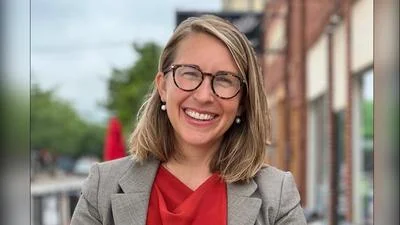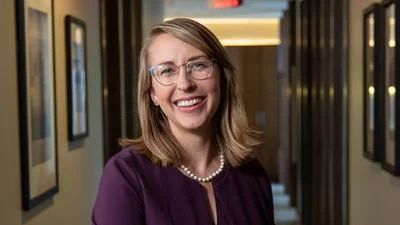With COVID-19 cases relatively low compared to other parts of Michigan, health care workers in the western part of the state are bracing for worse, according to a news report.
"Every day we've seen an uptick in the number of respiratory patients," Kendra Peot, a nurse manager at Spectrum Health Butterworth in Grand Rapids, said in MLive. "It's pretty intense," Peot added. "When these patients come in, they’re declining very quickly."
Patients coming to Spectrum and Blodgett Hospital, also in Grand Rapids, have trouble breathing, with some saying they feel like they're trying to catch their breath underwater while others are gasping, according to MLive.
Those no longer able to breath sufficiently on their own are placed on ventilators.
As of May 2, almost 1,700 presumptive positive cases of COVID-19 have been reported in Kent County, where 36 have died. Kalamazoo County reported 442 confirmed COVID-19 cases and 18 deaths. Muskegon County reported 301 confirmed cases and 17 deaths, while Ottawa County reported 261 confirmed cases and 12 deaths.
Those west Michigan numbers are dwarfed in counties elsewhere in the state, especially in Michigan's most populous county, Wayne County, where almost 8,000 COVID-19 cases had been confirmed by May 2 and almost 800 had died.
Other Michigan counties reporting confirmed COVID-19 cases were Oakland County with 7,475 cases and 745 deaths, Macomb County with 5,666 cases and 625 deaths, and Genesee County with 1,620 cases and 196 deaths.
Earlier in the month, Peot and another nurse manager, Missy Rykse, who both work in Spectrum Health Butterworth and Blodgett emergency departments, provided some of their perspective about the ongoing pandemic on the hospitals' website
"Believe it or not, this pandemic has helped pull us together as a team," Peot said on the in a Q&A on Spectrum Health Newsroom. "There has been a sense of relief, too, that we all have one focus: this pandemic. Leadership has made this our priority, so we are all continually focused on one thing."
Other patients, such as those suffering trauma, are still arriving for care and health care workers are taking them "one by one" while trying to keep ahead of the "COVID-19 chaos," Rykes said.
"The new challenge is identifying which patients are suspected COVID-19 cases and which are not," Ryskes continued. "And at some point, we will need to shift our thinking and assume that all cases could be related to COVID-19."
Health care workers last week told MLive that their training has prepared them for what might lie ahead in the pandemic. "What we're planning for is the unknown," Peot said. "We don't know essentially what that need will be. So we're trying to plan ahead and be prepared for that."





 Alerts Sign-up
Alerts Sign-up